Top: The headquarters of Libfor Forest Inc. in Riverview, Caldwell. The DayLight/Derick Snyder
By James Harding Giahyue and Derick Snyder
Editor’s Note: This is the first of a series that exposes Libfor Forest Corporation, an illegal timber trafficking company, operating in the Monrovian suburb of Caldwell.
CALDWELL – A DayLight investigation has uncovered an illegal timber trafficking company in the Caldwell neighborhood of Riverview. Libfor Forest Corporation. coordinates illegal logging activities in and out of Liberia, packages the wood at an unlicensed sawmill and smuggles them in containers, depriving the Liberian government of much-needed revenue.
Public records and other evidence obtained by The DayLight show that Libfor has never traded through the legal channel for timber harvested, transported, processed, imported, or exported from Liberia, known as LiberTrace.
Yet, the Ministry of Commerce and Industry’s records show that Libfor shipped 55,000 cubic meters of sawn timber in a 20-foot container on May 2 last year with a value of US$22,000.
Also, data compiled by British firm Experian, which tracks global trade, show Libfor has exported 51 times since June 2022. The latest shipments went to Turkey.
The US-based The Trade Vision, Another data company whose report is consistent with Experian’s, finds that Libfor’s exports to a single company last year were valued at US$71,447.
An internal document shows Libfor predominantly exports Iroko, a high-quality timber species selling for US$390 on the world market. Due to its durability, it is used in shipbuilding, outdoor construction and furniture.
The Iroko information is consistent with the one provided by the Ministry of Commerce, Experian and Trade Vision. The document suggests that Libfor predominately smuggles Iroko in different sizes via the Freeport of Monrovia 7.6 miles away.
Libfor’s setup matches a class A sawmill, which means the company has deprived the government of US$2,500 for each year it has operated. The same with export fees, local communities’ benefits and other payments, including for an environmental permit.
‘Black manager’
Libfor Forest Corporation, solely owned by Amara Fofana, a Liberian, was established in 2021. It is the one that has conducted the smuggling, the national and international trade databases.
But Süleyman Karabacak, a Turkish national, is Libfor’s practical owner.
Fofana recruits workers and runs the business’ errands, based on a previous DayLight investigation. Karabacak, on the other hand, manages the business, including finances and exports.
In 2023, Fofana signed a contract with Sierra Leonean chainsaw millers for illegal activities in Nimba, exposed in the investigation. The newspaper had published the bogus contract and oversized timber the chainsaw millers produced, compelling Fofana to admit to the wrongdoing. The contract also had Karabacak’s contact number, which a call app identifies as “Turkish buyer.”
“It is the white man who owns the company. Fofana is just the black manager,” one source said. “It is Süleyman [Karabacak] who has the money, who owns the machines.”
Karabacak also co-owns Libfor Forestry Inc., another company created on December 21, 2023, and registered earlier this month, per its article of incorporation and business registration certificate. Its other owner is Ibrahim Halil Sever, whose nationality The DayLight could not determine.
Before Karabacak, Hasan Uzan, another Turk, ran Libfor, Riverview residents and people familiar with the company, told The DayLight. Uzan was blacklisted by the Forestry Development Authority in 2023 for illegal logging in Nimba County. The sources identified Uzan in a picture with another Turk when police arrested the pair.
Photographs and videos The DayLight shot and obtained further unravel Libfor’s criminal world. Workers work with machines to rip thick, heavy timber into different dimensions. Loads of sawn wood adorned various locations, with a Caucasian person’s foot and fingers in some of the pictures. In another picture, men weld a truck destined to transport timber.
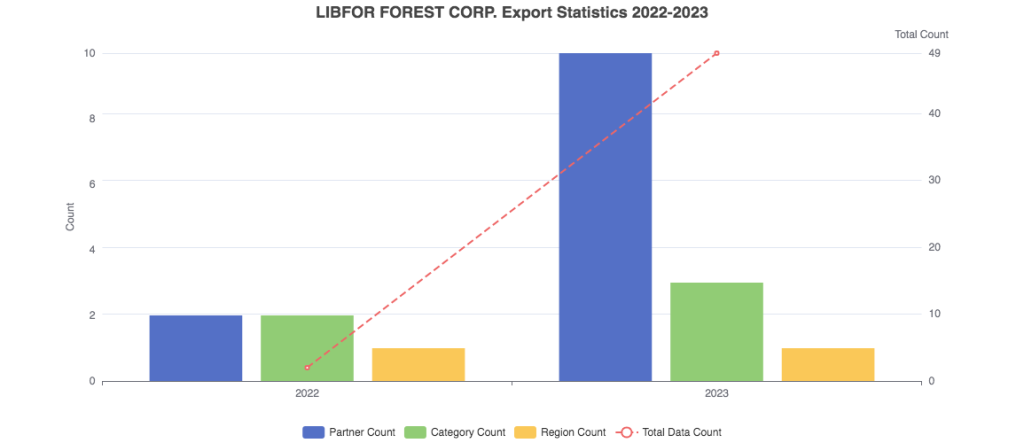
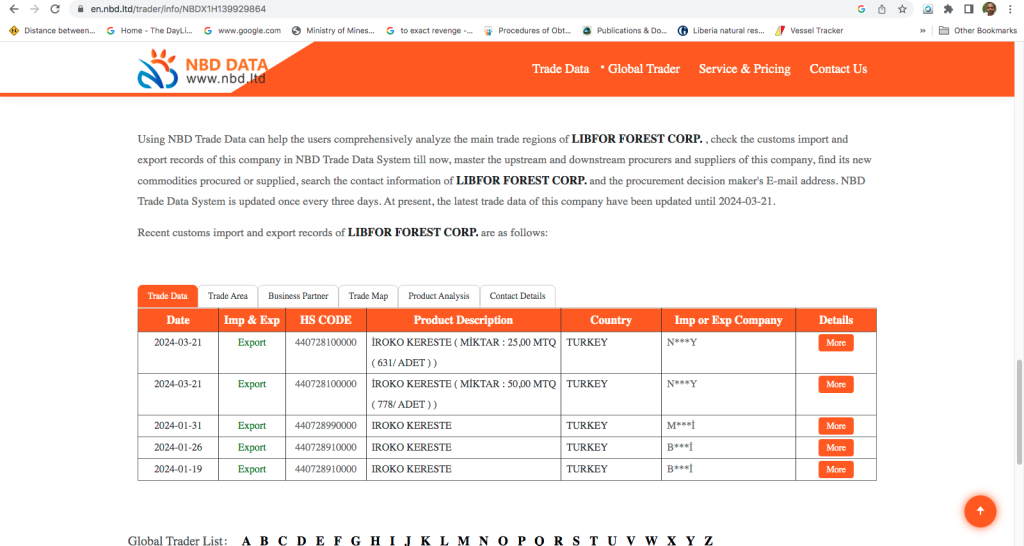
Drone shots of the sawmill corroborated the photographs and videos. They show guards manning the facility as men work. In one video, a person can be seen throwing something at the drone as it hovered over the walled property that headquarters Libfor.
‘In the bush’
But where do Libfors source their timber? Does it smuggle in sawn wood, too? The answers lie in our previous investigation of the company, interviews with customs and immigration officers, sources knowledgeable about Libfor’s activities, and public databases. Our 2023 investigation uncovered that Libfor had 20 chainsaws and deployed six Sierra Leoneans to operate them. The men, who were unregulated migrants, harvested some 460 pieces of Iroko in Karnplay in Nimba’s Gbeh-lay District.
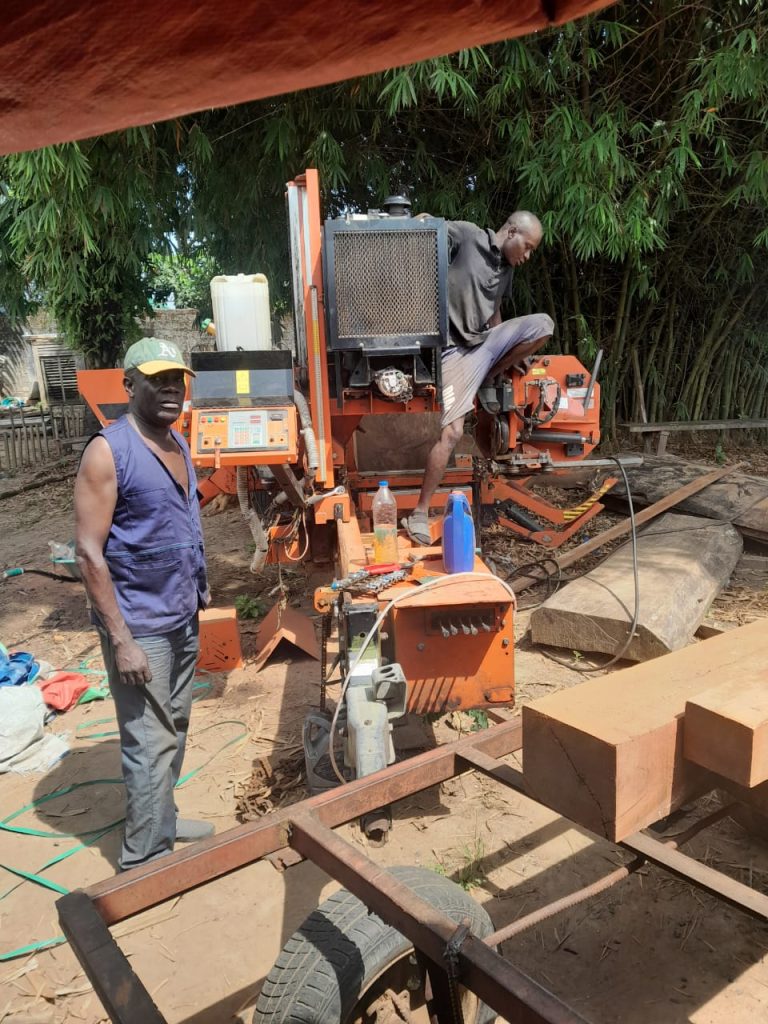
“We hauled some on the road, and the rest are in the bush,” Aruna Kamara, one of the men told The DayLight.
The Iroko timber were three inches thick, one inch more than the approved dimension for chainsaw-milled timber supplied domestically. Oversized timber are relatively a new illegal trade known across the industry as “kpokolo.”
By that time, the Forestry Development Authority (FDA) had banned kpokolo after permitting it for over a decade. That ban would be followed by a prohibition on the issuance of permits that fueled the illegal trade, according to minutes of one of the FDA’s recent board meetings, seen by The DayLight.
Fofana, the company’s frontman, claimed that the men had failed to follow instructions. Libfor made furniture to compete with Lebanese merchants. He had recruited the Sierra Leoneans because “There are no good operators in Liberia.”
But he somersaulted when confronted with the contract Libfor had given the men, instructing them to cut timber three inches thick, 13 inches wide and 15 feet long.
“I will reduce it because I can’t fight the government,” Fofana said at the time. He later claimed he reduced the wood, Smart News reported.
Fofana provided no evidence the timber were reduced or used to make furniture. Unfortunately, The DayLight did not have any evidence that Libfor was exporting wood at the time. Drone shots and pictures The DayLight obtained last December show oversized timber in Libfor’s yard. In one of the pictures, two men operate a mobile sawmill with kpokolo fastened to it.
“First they used to bring round logs for sawing but now they saw the wood in the bush themselves,” one source said. “They only [rip] it into smaller sizes at the sawmill.”
Sierra Leone
Different sources said Libfor also gets its timber from Gbarpolu and Sierra Leone.
In an audio recording obtained by The DayLight, Foday Kallon, a cross-border trucker, can be heard explaining how he transports wood from Sierra Leone. Kallon says he does not present any documents to Sierra Leonean immigration and customs officers at Bo Waterside, Liberia’s western border with Sierra Leone the border. He only pays customs duties on the Liberian side of the border.
The DayLight interviewed Kallon via WhatsApp and he added more information. He revealed that he had transported timber up to 80 inches in thickness, sourcing the wood in Kono and other parts of Sierra Leone.
“When you buy the wood, you need to hire a car from me and you pay me. I can carry your wood from Sierra Leone to Liberia. I, Mr. Kallon, will be there for you anytime you are ready. I will invite you to Sierra Leone or if you want to see me in Liberia, we discuss how you will pay, and how we will come and buy the woods. You and I can come to Sierra Leone and buy your wood and I will transport your wood from Sierra Leone to Liberia,” he told our reporter.
Liberian and Sierra Leonean immigration and customs officers, who asked not to be named as they were not authorized to speak, corroborated Kallon’s account. We obtained a picture of timber in a truck that eyewitnesses said Libfor imported over the weekend.
This supports a 2018 World Bank report that found Liberia imported over US$10,580 worth of timber from Sierra Leone, the third-largest importer of Sierra Leonean timber after China (US$20,295) and Belgium (US$14,230).
Sierra Leonean authorities did not respond to queries from a DayLight associate. The DayLight has reached out to the Liberia Revenue Authority and will update this story with the LRA’s response.
‘We can’t sleep’
Riverview residents have had issues with Libfor for causing noise pollution and spoiling the community’s road. The community—close to the St. Paul River, giving it a waterfront scenery—has watched as Libfor scars the secluded, suburban community.
Mary Toe, an elderly woman who lives behind Libfor’s fence, complained about the noise from the woodwork. “I can’t sleep at night,” she told The DayLight. “The people work all night.”
Other residents backed Toe’s comments. Hassan Kamara, a concerned youth, said Libfor’s container truck spoiled Riverview’s main road, sparking a protest.
French, Turkish, and Dutch
Libfor sheds light on the widespread irregularities and the general downturn of forestry. A recent review of the sector found only five out of 11 logging companies were active, and that none met legal requirements to operate. Liberia Extractive Industries Transparency Initiative (LEITI) reports that the sector generated US$7.65 million from July 2021 to December 2022, a far cry from 8.5 million in 2018 alone.
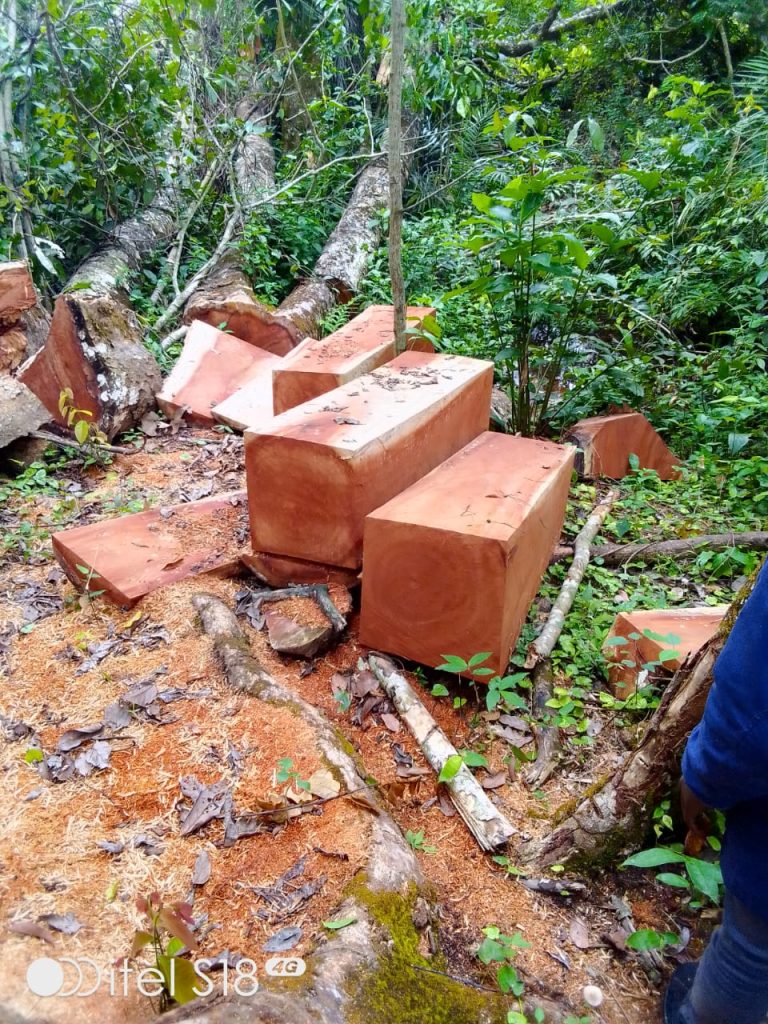
The Regulation on Establishing a Chain of Custody requires all timber harvested, transported, processed, exported, or imported to pass through Liberia’s timber tracking LiberTrace. Trading outside LiberTrace is an offense, with violators facing a prosecution, forfeiture of their vehicles and equipment, and a prison term, according to the Regulation on Confiscated Logs…
Libfor did not answer questions The DayLight posed to it. Karabacak claims he only speaks French, even though documents prove he speaks and writes English.
So, The DayLight translated the questions into French, Turkish and Dutch, the two nationalities of Libfor Forestry Inc. Nevertheless, Karabacak did not respond.
Instead, Karabacak informed Fofana, who called the newspaper and scheduled an interview that day. However, Fofana, too, did not turn out. He evaded an interview in Cape Mount and two schedules for Monrovia.

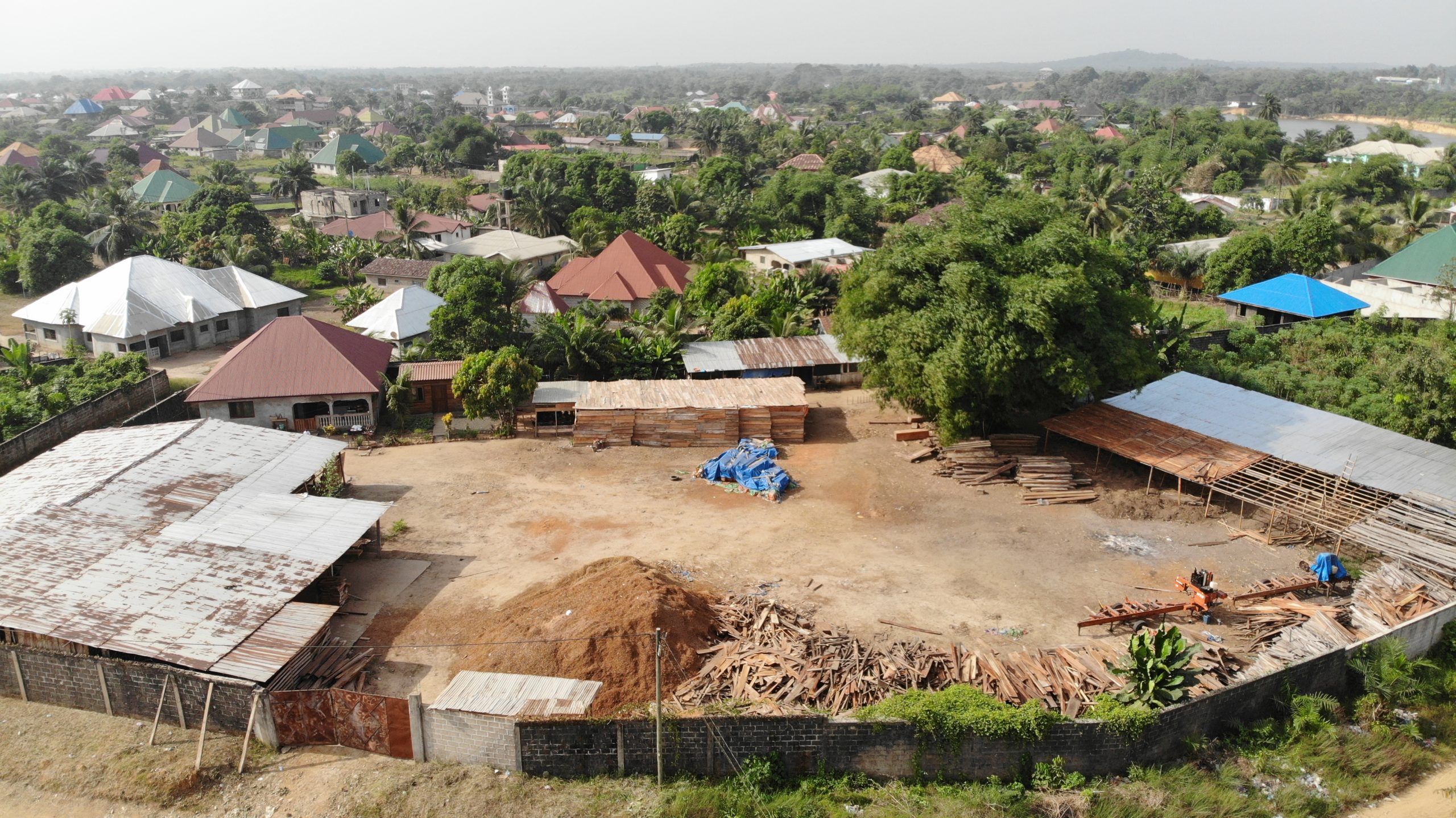

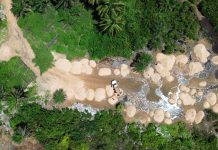
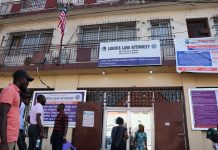
Facebook Comments